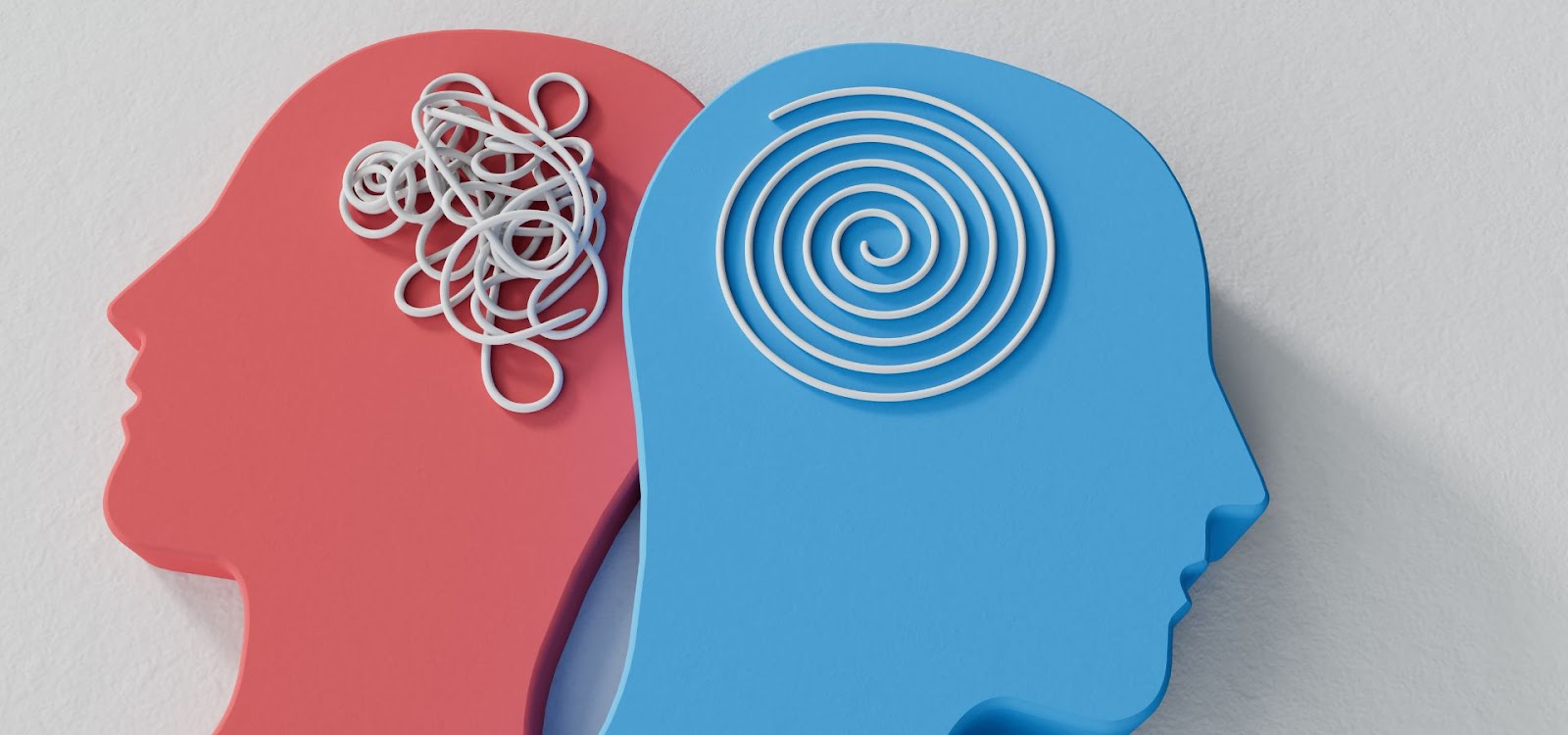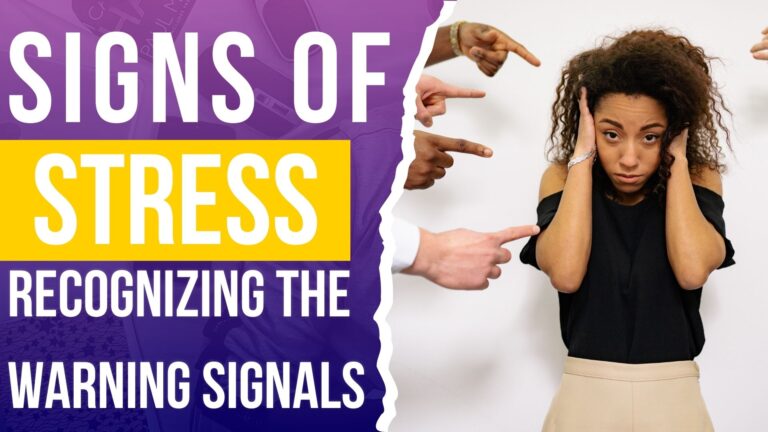Stress is a natural response to challenging situations, but when it becomes overwhelming or chronic, it can have serious consequences for both our mental and physical health. Often, stress creeps up on us slowly, and we may not recognize the signs until it has already taken a toll. Understanding the early warning signals of stress is crucial for taking action before it leads to burnout or health issues.
In this article, we’ll explore the common signs of stress, how it manifests in our body and mind, and what you can do to manage it effectively.
What Is Stress?
Before diving into the signs of stress, it’s important to understand what stress actually is. Stress is your body’s way of responding to any demand or threat. When you face a perceived danger—whether it’s real or imagined—your body’s defenses kick into high gear in a rapid, automatic process known as the “fight-or-flight” response.
This reaction can be useful in certain situations, such as when you need to avoid danger or perform under pressure. However, when stress becomes chronic, it can wear down your body and mind, leading to negative consequences.

Physical Signs of Stress
Stress doesn’t just affect your mind; it also manifests physically. If you’re experiencing stress, you might notice changes in your body that signal something is wrong.
1. Frequent Headaches
Tension headaches are a common physical symptom of stress. When you’re under stress, your muscles tighten, which can lead to persistent headaches. If you find yourself frequently reaching for painkillers, it may be time to evaluate the stressors in your life.
2. Digestive Issues
Stress can wreak havoc on your digestive system. Many people experience nausea, upset stomach, or even changes in appetite when they’re stressed. Chronic stress can also lead to more serious digestive issues, such as irritable bowel syndrome (IBS) or ulcers.
3. Muscle Tension
Do you often feel tightness in your neck, shoulders, or back? Muscle tension is a common sign of stress, as your body instinctively braces itself against perceived threats. Over time, this can lead to chronic pain or discomfort.
4. Fatigue and Sleep Problems
Stress can lead to sleep disturbances, including difficulty falling or staying asleep. Alternatively, you may feel exhausted all the time, even after a full night’s sleep. Fatigue is a common symptom of both acute and chronic stress.
5. Increased Heart Rate or Blood Pressure
When you’re stressed, your heart rate increases and your blood pressure rises as part of the “fight-or-flight” response. While this is normal in short bursts, prolonged stress can put a strain on your cardiovascular system, increasing your risk of heart disease.

Emotional and Psychological Signs of Stress
Stress doesn’t only show up in physical ways—it also has a significant impact on your emotional and psychological well-being.
6. Irritability and Mood Swings
When you’re under stress, you may find yourself snapping at loved ones or becoming easily frustrated. Stress reduces your emotional resilience, making you more prone to irritability and sudden mood swings.
7. Anxiety and Worry
Stress and anxiety often go hand in hand. If you’re constantly worrying or feeling anxious about the future, it could be a sign that stress is becoming overwhelming. Persistent anxiety can also lead to panic attacks or social withdrawal.
8. Difficulty Concentrating
Stress can impair your cognitive functions, making it difficult to focus, make decisions, or remember important information. If you’re finding it hard to stay on task or feel mentally foggy, stress could be the culprit.
9. Feeling Overwhelmed
When stress piles up, it’s easy to feel like you’re losing control or that you can’t manage everything on your plate. This sense of being overwhelmed can lead to burnout if not addressed.
10. Low Self-Esteem
Stress can negatively affect how you view yourself. You might feel like you’re not doing enough or that you’re failing in certain areas of life, which can erode your self-confidence over time.

Behavioral Signs of Stress
In addition to physical and emotional symptoms, stress often shows up in the way we behave. Here are some common behavioral changes that can indicate stress:
11. Changes in Eating Habits
Some people turn to food for comfort when they’re stressed, leading to overeating or binge eating. Others lose their appetite altogether. If you notice significant changes in your eating patterns, stress may be playing a role.
12. Procrastination or Avoidance
When stress becomes overwhelming, it’s tempting to avoid responsibilities or put off tasks. Procrastination is a common behavioral response to stress, as it allows you to temporarily escape feelings of pressure.
13. Increased Use of Alcohol, Tobacco, or Drugs
Some people cope with stress by turning to substances such as alcohol, cigarettes, or drugs. While these may offer short-term relief, they ultimately worsen stress and can lead to addiction or other health problems.
14. Social Withdrawal
If you find yourself isolating from friends or family, avoiding social events, or feeling detached from others, stress could be driving you to withdraw. Social withdrawal can exacerbate feelings of loneliness and increase stress levels.
15. Restlessness and Fidgeting
Do you find it hard to sit still, or do you fidget more than usual? Restlessness and physical agitation are common signs that stress is affecting your nervous system. You might feel like you need to keep moving or doing something to alleviate the tension.

How to Manage and Reduce Stress
Recognizing the signs of stress is the first step toward managing it. Once you’re aware of how stress is affecting you, there are several strategies you can use to reduce its impact and regain balance in your life.
1. Practice Mindfulness and Meditation
Mindfulness techniques, such as deep breathing and meditation, can help calm your mind and reduce stress levels. By focusing on the present moment, you can stop worrying about the future and create a sense of inner peace.
2. Exercise Regularly
Physical activity is a powerful stress reliever. Exercise releases endorphins, which are natural mood boosters, and helps reduce the physical symptoms of stress, such as muscle tension and fatigue.
3. Prioritize Sleep
Good sleep hygiene is essential for managing stress. Make sure you’re getting enough restful sleep each night by creating a relaxing bedtime routine and avoiding screens before bed.
4. Set Boundaries and Say No
One of the main causes of stress is overcommitting to tasks and responsibilities. Learn to set healthy boundaries and don’t be afraid to say no when necessary. This will help you protect your time and energy.
5. Seek Support
Talking to a trusted friend, family member, or therapist can help you process stress and find solutions. Sometimes, simply sharing your feelings with someone else can provide relief and perspective.
Conclusion
Stress is an inevitable part of life, but it doesn’t have to control you. By learning to recognize the warning signals of stress—whether they’re physical, emotional, or behavioral—you can take proactive steps to manage it before it becomes overwhelming. Practicing mindfulness, maintaining a healthy lifestyle, and seeking support when needed can all help you reduce stress and maintain balance in your life.
FAQs
Can stress cause long-term health problems?
Yes, chronic stress can contribute to serious health issues such as heart disease, high blood pressure, and mental health disorders like depression and anxiety.
How can I reduce stress quickly?
Quick ways to reduce stress include deep breathing exercises, taking a short walk, or practicing mindfulness for a few minutes.
Is stress always bad?
No, stress in small amounts can be motivating and helpful in certain situations. However, chronic or overwhelming stress is harmful and should be managed.
When should I seek professional help for stress?
If stress is interfering with your daily life, causing physical symptoms, or leading to feelings of hopelessness, it’s important to seek help from a mental health professional.


